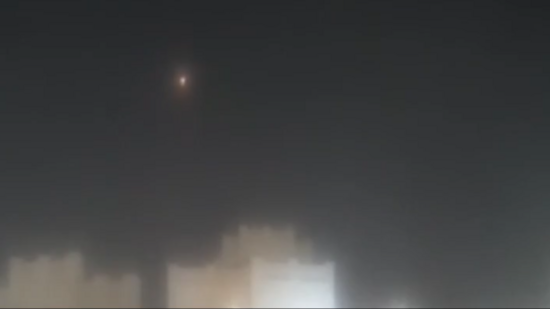
Regional Tensions Surge
On June 23, 2025, Iran launched a coordinated missile strike on US military bases, notably targeting Al‑Udeid Air Base in Qatar and a base in Iraq, as part of Operation Tidings of Victory—a direct response to recent U.S. strikes on Iranian nuclear facilities . Iran aimed six to ten missiles at Al‑Udeid around 8 p.m. AST, prompting Qatar to preemptively close its airspace
Qatari Response
Qatar’s military officials stated that their air defense systems successfully intercepted incoming missiles at Al‑Udeid, and underscored that “the skies and territory of the State of Qatar are safe” . Moreover, Qatar declared it “reserves the right to respond in accordance with international law” to any violation of its sovereignty .
What Sparks Led to This Escalation?
US Airstrikes on Iranian Nuclear Sites
On June 22, 2025, the US, alongside Israel, launched Operation Midnight Hammer, targeting three key Iranian nuclear facilities (Fordow, Natanz, Isfahan) with bunker-buster bombs and cruise missiles. This marked the first direct U.S. military strike in the Iran–Israel conflict.
Iran’s Retaliatory Strategy
In the aftermath, Iran vowed a “proportionate response” and promptly initiated Operation Tidings of Victory on June 23. The strikes on Al‑Udeid and the Iraqi base were symbolic, matching the volume of bombs used against its own installations. Iran’s decision reflects a calculated shift toward direct confrontation with U.S. military assets.
Human, Political & Economic Fallout
Military Readiness & Diplomatic Alert
The U.S. Defense Department and White House officials have increased monitoring of U.S. bases across the region, particularly in Qatar. Concurrently, the U.S. State Department issued a worldwide caution to American citizens abroad, citing heightened risk .
Impact on Air Travel
To contain risk, Qatar suspended commercial flights. Finnair halted flights to Doha until June 30, and Air France ceased flights to Tel Aviv and other hotspots , triggering global ripple effects across energy markets and transport insurance rates .
Energy & Economic Aftershocks
Oil insurance premiums surged from ~0.2–0.3% to ~0.5%, reflecting growing apprehensions over maritime security in the Strait of Hormuz.
Broader Military Exchanges
Israel–Iran Missile Exchanges
Parallel to U.S.–Iran escalations, Israel continued striking Iranian military and suspected nuclear-related sites, including near Tehran and at underground facilities like Fordow. Iran, in turn, launched ballistic missile barrages against Tel Aviv, where some civilians were injured © .
Global Statements & Diplomatic Movements
- NATO echoed concerns that Iran “must not develop a nuclear weapon” .
- UN envoys raised alarms over the potential humanitarian fallout, including civilian casualties and detainees in sites like Evin prison .
- Russia, along with countries such as South Africa, pressed for a return to diplomatic channels, urging UN mediation to prevent wider conflict .
Proxy Group Calculations
So far, Iran’s allied militias—Hezbollah among them—have held back from launching direct assaults, opting instead for cautious diplomacy while positioning their rhetoric carefully .
What Comes Next?
Risk of Wider War
A top U.S. official warned that further attacks from Iran—even at commercial shipping or energy infrastructure—could invite significant American counterstrikes . Close monitoring of potential threats to the Strait of Hormuz is ongoing.
Diplomatic Pathways on the Table
Despite military build‑ups, key players including Trump’s administration, Russia, and even Iran signalled openness to diplomatic efforts—though Iran insists negotiations remain off until after its immediate “proportionate” response .
Final Word
The most recent escalation marks a dangerous shift in the Israel–Iran–U.S. triangle. Iran’s targeting of U.S. bases in Qatar and Iraq indicates a willingness to directly challenge American presence in the region. Qatar’s defensive response and its reserve right to react underscores the multilayered international implications. With global oil markets jittery and diplomatic channels strained but still active, the world watches anxiously: will cooler heads prevail, or will this spiral into a broader regional conflict?
Thanks For Reading